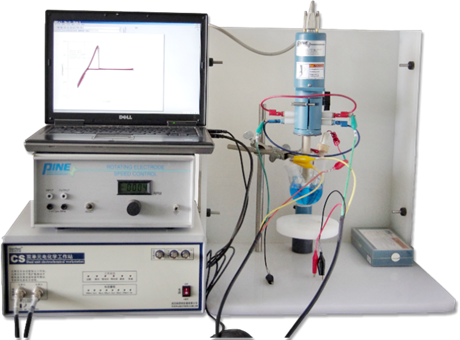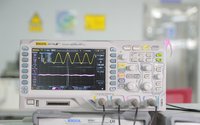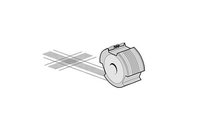What are the common electrochemical performance tests?
Date:2024-07-31 14:00:00 Views:3064
Electrochemical performance testingMainly used to evaluate the electrochemical properties of materials such as batteries, supercapacitors, fuel cells, etc. Common electrochemical performance tests include:

1. Cyclic voltammetry(CV)
· By changing the potential and measuring the change in current over time, analyze the reversibility, reaction rate, and electrochemical behavior of electrode reactions.
2. Constant current charge and discharge test
· Measure the charging and discharging process of a battery or capacitor at a constant current, and evaluate its capacity, energy density, and power density.
3. AC impedance spectrum(EIS)
· By applying a small AC signal, measuring the phase difference between current and voltage, analyzing the impedance characteristics of the electrochemical system, and evaluating the kinetics of electrode processes and electrolyte conductivity.
4. Charging and discharging efficiency testing
· Measure energy loss during charging and discharging processes, calculate energy efficiency to evaluate the performance of batteries or capacitors.
5. electric current-Voltage characteristic test (I-V curve)
· Measure the current at different voltages and analyze the working characteristics of electrochemical devices.
6. Electrochemical stability testing
· Evaluate the stability of materials during long-term use or cycling, and monitor the changes in performance over time.
7. Electrochemical corrosion testing
· Evaluating the corrosion resistance of materials in electrolyte environments is usually done through polarization curves or immersion tests.
8. Electrochemical kinetics testing
· The study of the rate and mechanism of electrode reactions is usually combined with cyclic voltammetry.
9. Self discharge test
· Measure the battery's power loss when not connected to a load and evaluate its self discharge characteristics.
10. Interface feature testing
· The electrochemical behavior of the interface between electrodes and electrolytes is usually studied through in-situ techniques such as atomic force microscopy, scanning electron microscopy, etc.
Through these tests, the performance of electrochemical materials can be comprehensively evaluated, helping to optimize the design and application of materials. The selection of appropriate testing methods usually depends on specific application requirements and material properties.




 Weixin Service
Weixin Service

 DouYin
DouYin
 KuaiShou
KuaiShou





















